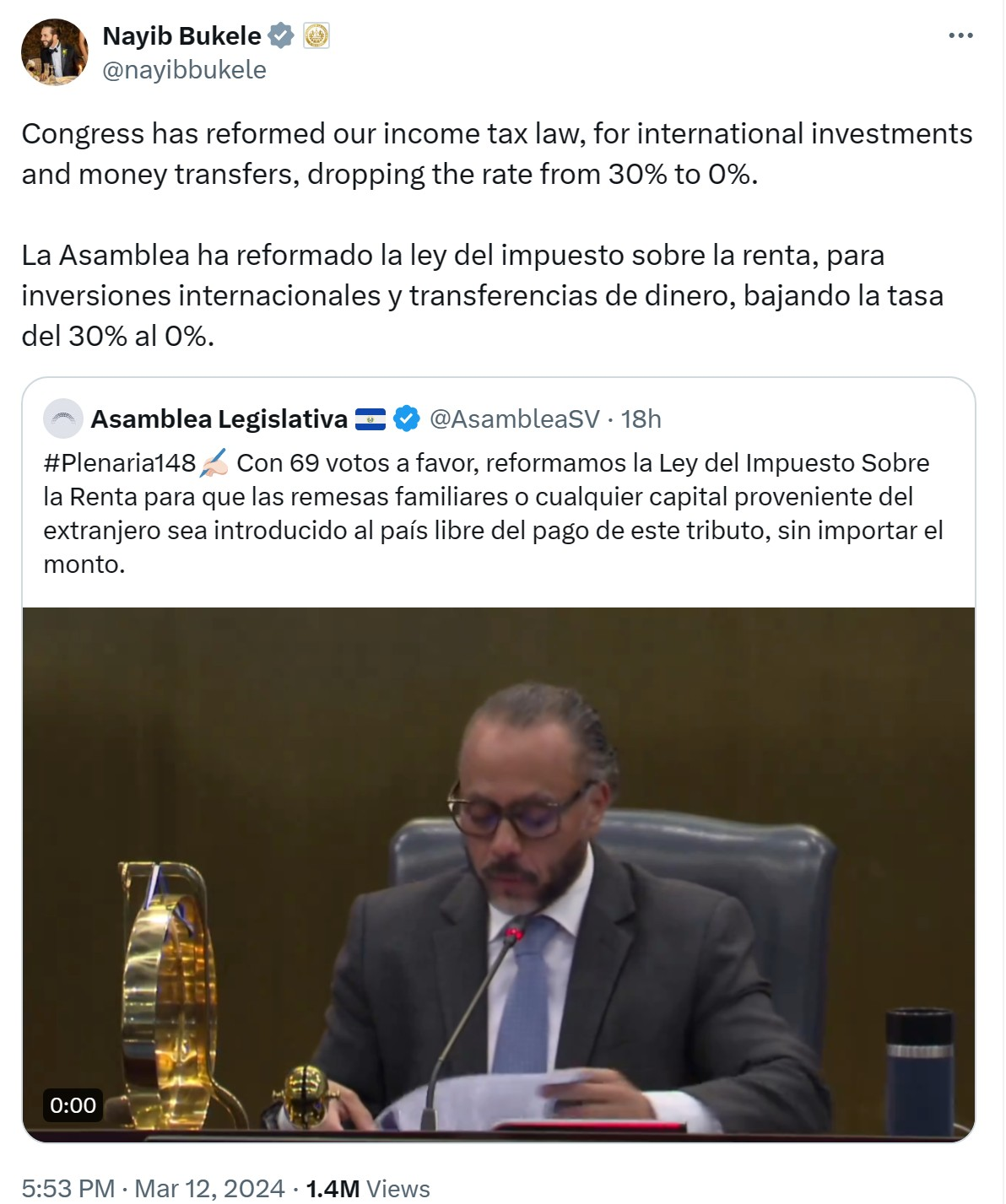El Salvador’s Legislative Assembly has passed a significant measure to abolish income tax on foreign investments and remittances, reducing the rate from 30% to 0%. The move aims to attract international investments and bolster the country’s economy, with President Nayib Bukele announcing the decision on social media platform X.
You might also like
FDIC Official Calls for Enhanced Digital Asset Policy to Safeguard US Influence
Philippine Central Bank Provides Insight into wCBDC Pilot Project
President Bukele shared the news, stating, “Congress has reformed our income tax law, for international investments and money transfers, dropping the rate from 30% to 0%.”

In a separate X post, Asamblea Legislativa, the legislative assembly of El Salvador, said that the measure was approved with 69 votes, out of, presumably, 84 (barring any abstaining or absent votes).
The reform ensures that family remittances and any capital from abroad can be introduced into El Salvador without being subject to income tax, irrespective of the amount. This initiative is part of El Salvador’s broader efforts to stimulate economic growth and attract foreign investment.
Since President Bukele’s election in 2019, El Salvador has undergone significant transformations, including the adoption of Bitcoin as legal tender in 2021. The country’s economy has shown promising growth, with the gross domestic product (GDP) increasing from $24.9 billion in 2019 to $32.4 billion in 2022.
The decision to eliminate income tax on foreign investments and remittances follows a series of pro-business reforms implemented by El Salvador. In April 2023, the country abolished all taxes related to tech innovation, including income, property, and capital gains taxes on technology-related activities such as software programming, coding, and AI development.
These reforms underscore El Salvador’s commitment to fostering a favourable environment for investment and innovation, positioning the country as an attractive destination for both domestic and international businesses.
 coinculture.com
coinculture.com
